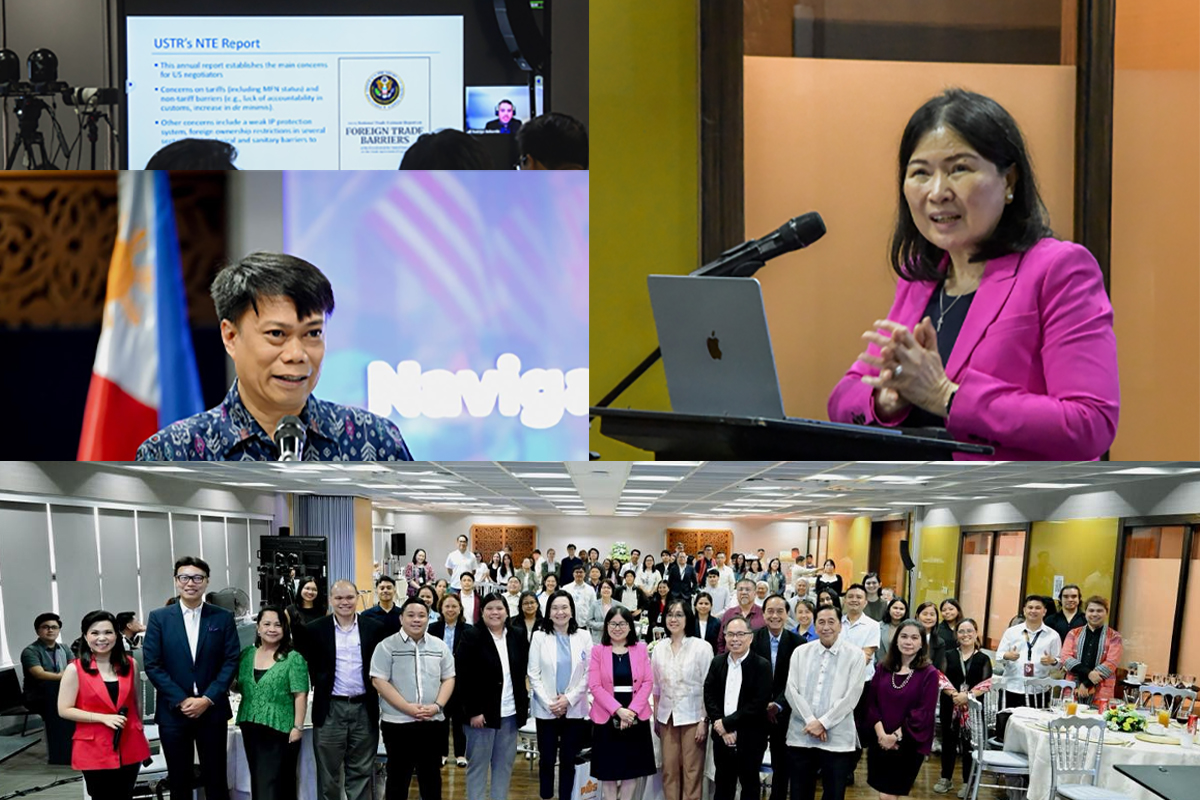THE significance of the Shipping and logistics industry in a country’s economic growth cannot be overemphasized.
The industry manages the transfer of products—from producers or manufacturers to consumers. Shipping and logistics processes include proper handling of materials, storage or warehousing, packing, transportation, and shipping.
Other industry functions are procurement, management of inventories, and customs service. Since it is involved in the distribution of products, the industry is an indispensable part of any business operation.
Aggressive infrastructure program
Finance Secretary Carlos Dominguez 3rd said that recognizing the importance of proper distribution of goods, the Duterte administration has set as part of its top economic program an aggressive infrastructure development project dubbed “Build, Build, Build.”
Dominguez pointed out that incompetent infrastructure adds to the costs of production. He said “Build, Build, Build” should reduce cost of transporting goods, encourage efficient agriculture, improve linkage across the country, and pave the way to inclusive growth.
The P8-trillion fund for the infrastructure modernization program of the Duterte administration will also create more jobs, improve land prices, boost domestic demand, and serve as a stimulus that will enable the economy to expand at an even faster rate, Dominguez said.
“The infra program is the key to reducing disparities across regions and improving the productivity of our agriculture. It seeks to bring down the costs of manufacturing goods and delivering them to consumers here and abroad. In a word, this infra program is key to making us fully competitive in this most dynamic region of the world,” he added.
Vital contribution
The Department of Trade and Industry (DTI) has well recognized the shipping and logistics industry’s vital contribution in the country’s economic development. DTI said the Philippines’ logistical costs account for 24 percent to 53 percent of wholesale prices.
In the country, shipping and port handling costs cover 8 percent to 30 percent. Shipping and port handling costs cover 8 percent to 30 percent, given the goods’ route, and roughly 5 percent of the retail price of goods.
DTI noted that the Philippines placed 71st out of 160 countries in the Logistics Performance Index of World Bank.
The World Bank Logistics Performance Index provides the measures that would enable countries to perform well in distributing their goods.
Effective logistics development benefits business in more ways than one: facilitating trade and connectivity; contributing to the lowering cost and clearance time of imports and exports; and ensuring the smooth flow of commodities. DTI also notes that efficient logistics management encourages market expansion and boosts investors’ confidence in transporting goods and services.
Role of the private sector
Dominguez said that the government could not work on its development program alone. “We need the enthusiasm of the private sector to make the investments that will make expenditure for new infra worthwhile,” Dominguez said. “We need thousands of small and medium enterprises that will complete the supply chain of larger industries.”
Finance Secretary Carlos Dominguez 3rd
“We need facilities that will hold aggregate rural produce and deliver efficiently to the cities,” he added.“We need to foster the chains of integration that will, in turn, produce a more coherent economic growth.”
He also cited the need for corporations in the logistics industry to help micro, small and medium enterprises (MSMEs) reap the benefits of distribution networks through more private-led investments in this sector.
Improving the industry
Meanwhile, a study conducted by state think tank Philippine Institute for Development Studies (PIDS) said that the government must reduce regulatory burdens in the logistics industry to boost the country’s export competitiveness.
The study aimed to examine various regulatory requirements and legal obstacles in the country’s distribution, multimodal transport and logistics services, authored by PIDS Senior Research Fellow Ramonette Serafica and consultants Lai-Lynn Barcenas, Glenda Reyes and Jose Tongzon.
In 2016, the country’s logistics performance was “way below those of the older members of the Association of Southeast Asian Nations (Asean),” the study said, noting that it was even lower than Vietnam.
“The Philippines has one of the most restrictive set of regulations, which, [coupled]with other factors, are responsible for its relatively poor logistics performance,” it added.
DTI notes that efficient logistics management encourages market expansion and boosts investors’ confidence in transporting goods and services.
The lack of awareness about the importance of integration and coordination in the logistics chain has resulted in “inconsistent, overlapping and sometimes contradictory policies,” it said.
This has caused the country to lose major logistics providers and foreign investors. The country’s uncoordinated logistics system can also be attributed to the absence of a single coordinating agency, as various agencies have different sets of regulations for the transport, logistics and distribution sectors.
This hinders prospective investors from doing business in the country, as “there are many regulations and business licenses covering all aspects of logistics services under the jurisdiction of different government agencies,” the study said.
The quality of port management also led to higher logistics costs for service providers.
“The same issues persist at the local government level, with different local government units (LGUs) implementing varied, inconsistent and unpredictable regulations,” the study said.
These include using different stickers for passage to different areas, inconsistent operating permits and different number coding schemes.
To address this problem, the authors proposed that the Department of Transportation and Congress ban collectiong pass-through fees in LGUs to prevent abuse of authority from happening at the grassroots level.
They also suggested “introducing more foreign competition and improving access to the most efficient transport and logistics service providers” to improve the country’s trade.
They recommended the creation of a lead agency to oversee the sector and ensure “that the flow of information between relevant stakeholders is maintained” and is responsible for securing the cooperation and support of other agencies.












